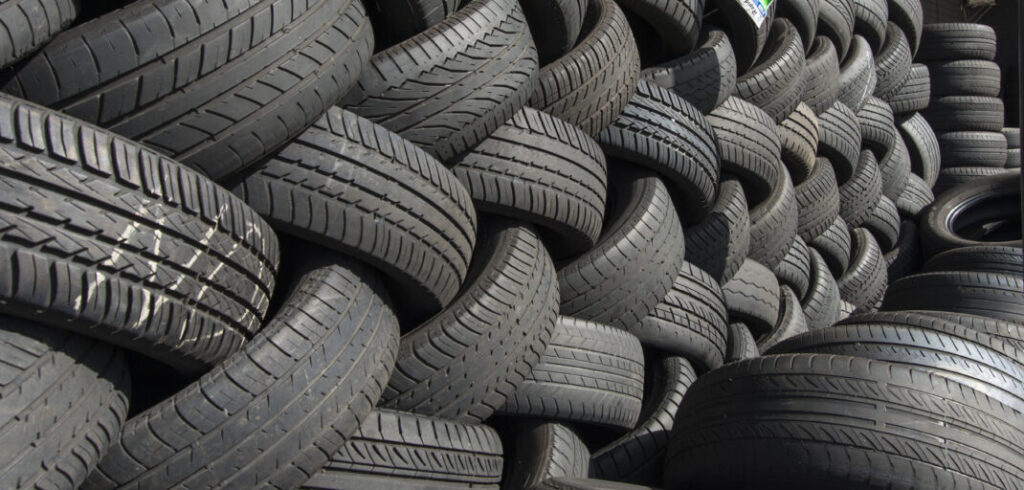An asphalt material made partially from recycled tires is being trialled on streets in Gold Coast, Australia, after being approved by the local authority. Produced by Austek Asphalt Production and Pearl Global, the material, known as Carbonmastic, could divert millions of otherwise unusable tires from landfill sites each year.
“We essentially fully recycle used tires and repurpose the products to replace diesel fuel at our plant and concurrently use the recovered carbon black to make a superior asphalt product,” commented David Simmons, general manager of Austek. “This product is great for council roads because it restricts reflective cracking, you can lay it thinner because it’s a stronger compound, and it’s a smoother, quieter surface.”
It is estimated that 1.5 billion tires are dumped worldwide annually, with around 56 million tires currently sitting in disposal sites in Australia alone. Simmons stated that around 1.6 million tires would be recycled each year during production of the asphalt material, with the manufacturing process recycling 100% of each tire, creating a circular lifecycle sustainable economy.
As a direct result, this would mean fewer tires reaching landfill or stockpiles, both of which cause major environmental challenges worldwide.
Simmons continued, “Obviously there’s environmental benefits. There’s also cost savings, there’s benefits to council roads, and it’s got real safety advantages. This is absolutely ground-breaking stuff.”
Tires from all types of application and vehicle were broken down to produce reusable products such as carbon char, steel and fuel oil. The carbon char developed during this process is also a core component of the Carbonmastic asphalt product.
The tire-derived fuel is also being adopted as an alternative to diesel, with the Austek Production plant in Yatala, Australia, estimating that it will replace 1.3-1.6 million liters of diesel fuel. The facility is expected to produce around 160,000 tons of the material a year and save an estimated 7,000 tons of CO2 from going into the atmosphere.
Compared with other recycled tire products such as crumbed rubber, the Carbonmastic production process utilizes 10 used tires, as opposed to just 0.7 of a high-grade truck tire, for every ton of material produced, and the activated carbon produced improves bitumen strength and color.
“There’s nothing like it in the industry at all. About 0.7 of a truck tire is the closest thing that crumbed rubber delivers. Nothing gets wasted [and] it reduces our carbon footprint massively,” ended Simmons.
Presently in Australia, 14% of end-of-life tires are recycled into reusable products, 56% are exported and 30% are illegally dumped, stockpiled or put into landfill sites with toxins then seeping into soil or water.
“Our city is broadening its economy which is attracting new innovation and new industry,” said Gold Coast mayor Tom Tate. “To see this type of technology is fantastic as it brings with it the idea of renewing waste products. Recycling is at the forefront of community planning across Australia, so I look forward to seeing how this new asphalt application rolls out – literally.”
A number of other Queensland councils have expressed interest after 180 tons of Carbonmastic was laid at the Norwell Motorplex’s V8 Supercar racetrack between Brisbane and the Gold Coast.



